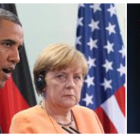
5 Jul 2018
In Q1 the main UK indexes fell by between 6% and 8%. In Q2, they rose by 7% to 8%. The chart of the first six months is a “V” or perhaps a two-fingered salute to all the financial commentators who claim knowledge of the future. Bond yields again did almost nothing. I have written elsewhere about the prevailing mood that seems to try to put a pessimistic spin on everything. As a result I would imagine that most people would be amazed to know that shares were so strong in Q2. How could they be in the turmoil of the imminent collapse of international trade, courtesy of the hardball tactics of Mr Trump and M Barnier, l’homme who loves to say “non”? The sole purpose of trade rules is to prevent trade from taking place and that these two gentlemen are both happy to use that threat as what I suppose we must call a negotiating tactic, if we could only tell what it is that they are trying to negotiate. Never mind that. The stock market doesn’t seem very concerned about it. Last quarter I listed thirteen everyday UK shares with markedly high dividend yields. Unsurprisingly, in view of the market performance, you would have done quite nicely if you had bought them. Not a single one of them went bust between April and June, I am pleased to say and the shares of none of them declined. It is better to look at valuations and to ask what they are telling us than to listen to what commentators are actually telling us. How about the yields on government bonds? I have said that there was little change in Q2 (despite innumerable predictions of falling prices) but are there trends and what do the absolute levels tell us? Germany is the benchmark bond for the EU. The ECB will continue its asset buying programme until the end of this year. It is still boosting asset prices by its own version of QE, implying that the crisis that started in 2008 continues. A year ago, 10 year Bunds yielded 0.5%. Now they yield 0.3%. Not many signs of imminent recovery there. Bond yields...

